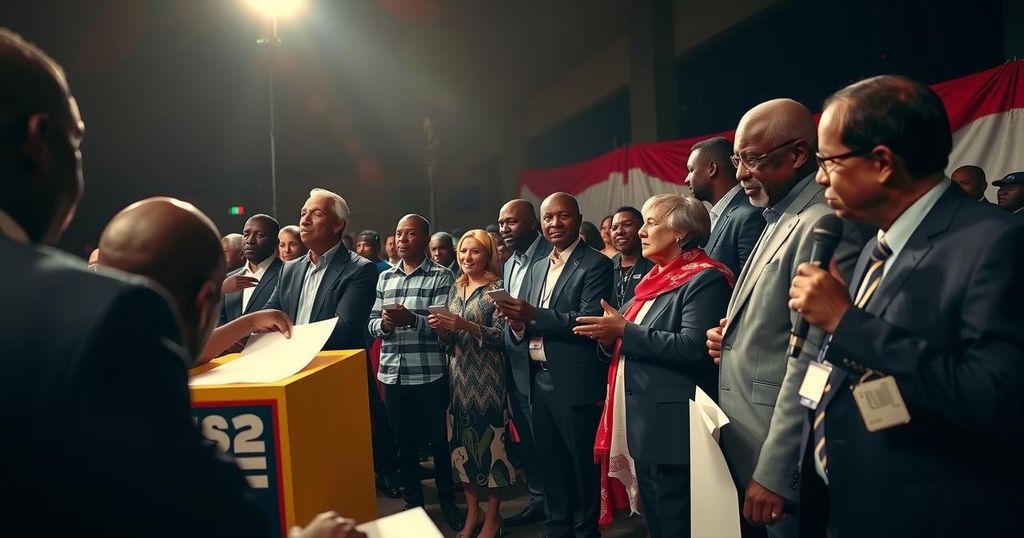Namibia’s 2024 elections, taking place on November 27, could significantly alter the political landscape as the ruling SWAPO party, facing declining popularity and rising youth discontent, seeks to maintain power. The competition includes seasoned politicians and emerging candidates advocating for economic reform and land rights. With over 1.45 million registered voters, the electoral outcome depends heavily on youth participation amid pressing national issues.
As Namibia prepares for its presidential and parliamentary elections on November 27, 2024, the political landscape is characterized by uncertainty and potential change. The ruling SWAPO (South West Africa People’s Organization) party, which has maintained power since the nation’s independence from apartheid South Africa in 1990, faces mounting pressure from disillusioned voters, particularly the youth seeking reform. This election marks the seventh since the country gained independence and could be pivotal in determining whether SWAPO retains its long-standing dominance.
A key challenge for SWAPO comes from emerging political forces and a younger electorate that feels increasingly alienated from the party. In the backdrop of significant electoral shifts in the region, such as the diminishing power of liberation movements in Botswana and South Africa, Namibia may also witness a transformative electoral outcome. Analysts emphasize the importance of youth engagement, as the newly registered voters significantly influence election dynamics, particularly as the opposition remains somewhat disjointed, which may still afford SWAPO a favorable outcome.
Among the presidential candidates, Netumbo Nandi-Ndaitwah of SWAPO emerges as a notable figure, being the party’s first female candidate and a seasoned politician with a strong background in independence efforts. Nonetheless, rising public grievances over economic inequality, unemployment, and corruption pose significant challenges to her campaign. Her primary opponents include Panduleni Itula, who gained substantial support as an independent candidate in the previous elections, advocating for changes to the status quo, and McHenry Venaani, leader of the Popular Democratic Movement, who seeks to position his party as a legitimate alternative.
Voter turnout is expected to be crucial, particularly among younger demographics that will play a decisive role in shaping the political future of Namibia. The country, while rich in resources, grapples with deep-seated issues of poverty, unemployment, and land reform, which will likely dominate public discourse as the election approaches. As polling day nears, the eyes of the nation and the region will be focused on the unfolding of events, and the potential for a significant political shift remains palpable.
Namibia, having gained independence from apartheid South Africa in 1990, has been predominantly governed by the SWAPO party, which was instrumental in the liberation struggle. As the nation approaches its 2024 elections, the socio-political conflict within the country reflects broader trends throughout Southern Africa, where traditional ruling parties are experiencing unprecedented challenges. With the youth becoming increasingly vocal about their demands for change and reform amidst growing frustrations over economic disparities and governance issues, the political climate suggests a turning point for Namibia’s electoral history.
The 2024 Namibia elections stand as a potential pivot in the country’s political narrative, where dissatisfaction with the ruling SWAPO party may culminate in a shift in power. The presence of strong challengers, particularly from the opposition parties and the young electorate, indicates a pressing need for reforms addressing critical issues such as economic inequality and corruption. With key debates around the capabilities and visions of the candidates underway, the upcoming elections could reshape Namibia’s political landscape, potentially heralding a new era of governance.
Original Source: www.aljazeera.com






